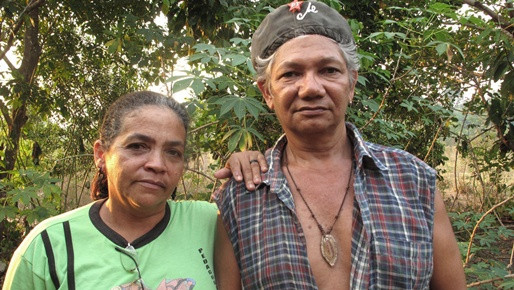Global Witness: Environmental Activists Murders 'Have Soared Dramatically'

More than 900 environmental activists have been slain in 35 countries over the past decade with very few of their murderers ever likely to be brought to justice, a survey by London-based Global Witness group reported.
Global Witness, which reports on links between environmental exploitation and human rights abuses, said the death toll has soared dramatically and has largely gone unpunished.
The report said that many of those facing threats "are ordinary people opposing land grabs, mining operations and the industrial timber trade; often forced from their homes and severely threatened by environmental devastation".
In South America, leading rainforest defenders José Cláudio Ribeiro da Silva and his wife, Maria do Espírito Santo, were reportedly gunned down in the Brazilian Amazon in 2011, after years of campaigning against illegal logging and forced evictions.
In Asia, Thai activist Prajob Naowa-opas, who battled to save his community in central Thailand from the illegal dumping of toxic waste, was killed by a gunman in broad daylight last February.
Many of those facing threats are ordinary people opposing land grabs, mining operations and the industrial timber trade, often forced from their homes and severely threatened by environmental devastation.
"The cold-blooded killing of Prajob marks yet another example of the fundamental failure of Thai authorities to protect activists who risk their lives while defending their communities," said Human Rights Watch's Asia director, Brad Adams at the time.
These are just some of the numerous examples of enviromentalists who have been killed in recent times.
According to the figures in the latest Global Witness' survey, Brazil is the world's most dangerous place for environmental activists with 448 deaths between 2002 and 2013, followed by 109 in Honduras and 58 in Peru. In Asia, the Philippines is the deadliest with 67, followed by Thailand with 16.
Global Witness cautioned that because figures from some African and Asian nations are often difficult to obtain, the actual death toll could be far higher.
"It paints a deeply alarming picture, but it's very likely this is just the tip of the iceberg, because information is very hard to find and verify. Far too little attention is being paid to this problem at the global level," said Oliver Courtney, senior campaigner at Global Witness.
Human rights groups say as competition gets ever hotter for dwindling natural resources, big business interests are prepared to go to any lengths to protect their interests, including murder.
Global Witness called for a more coordinated and concerted effort to monitor and tackle this crisis.
"Regional human rights bodies and national governments need to properly monitor abuses against and killings of activists, and ensure that those responsible are brought to justice," the report concluded.
© Copyright IBTimes 2025. All rights reserved.




















